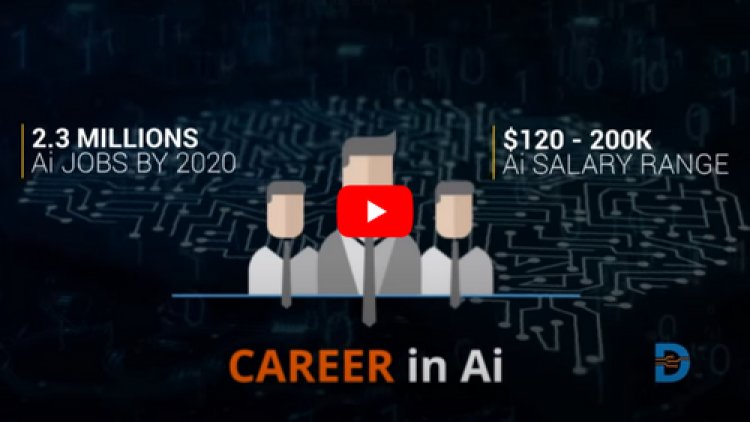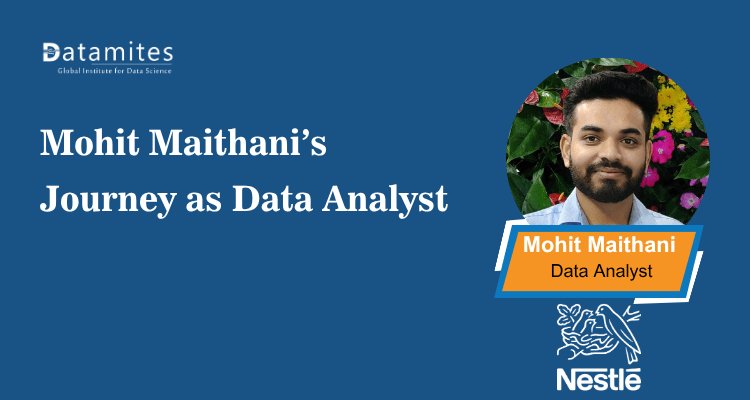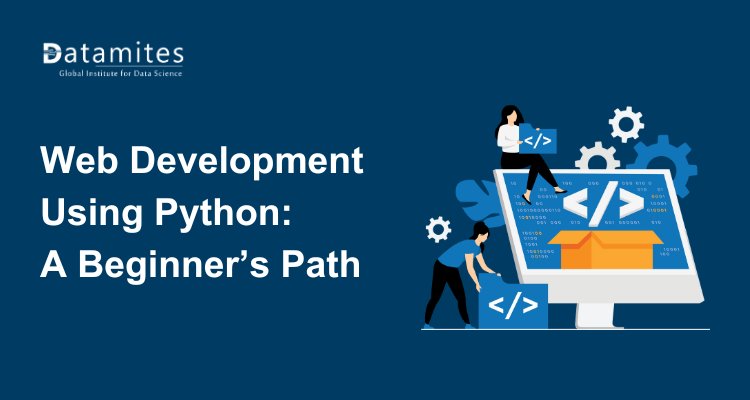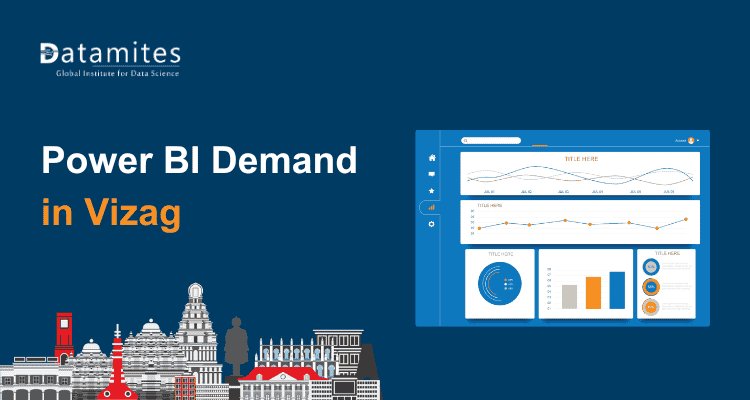AI in Finance – How AI is refining the Finance and Banking Sector?
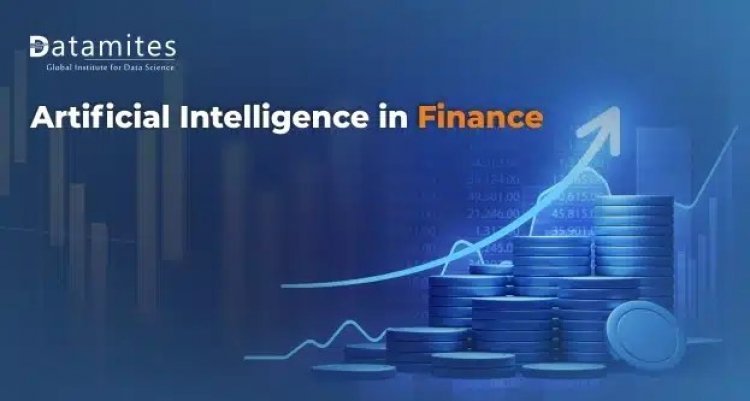
The future of financial services lies with artificial intelligence, they say. This technology sprang from the pages of science fiction and fantasy books, just like many other technologies that we find today. The ability of machines to fix issues and relieve some of the 21st century’s rapidly building pressure was something that people often daydreamt about. As more AI applications hit the market, how will intelligent systems change the way bankers make and manage money?
Long known for being among the first to adopt cutting-edge technologies, the financial services sector has realized that better data enables better decision-making and results in the bottom line, from computerized ticker tapes to algorithmic trading. An analysis from Mordor Intelligence projects that between 2022 and 2027, artificial intelligence (AI) in finance would develop at a compounded annual growth rate (CAGR) of over 25%.
Know AI and the wide applications it has in Industries
AI is a collection of technologies that enables computers to carry out a range of complex tasks. This could include the ability of computers to see, hear, interpret, and even translate spoken/written information, analyze the information, and even make suggestions based on the information. Being the foundation of current computing innovation, AI helps automate processes and provides insights into massive amounts of data and unleashing value for individuals and organizations alike.
Artificial intelligence has evolved into a vital component of the most demanding and steadily growing businesses in less than 70 years from the day the word itself got coined. In addition to the notable achievements that it is been having, AI has been broadly embraced in almost every industry. It is evident everywhere we look. For example, the music suggestions that Spotify gives and the discount offers that we keep getting from that one shopping website that we haven’t used in a while are all AI doings.
Innovating executive managers and business leaders constantly research novel applications of AI in Finance and other industries to get a foothold over competitors. Additionally, there’s a good probability that a financial institution is already falling behind the competition if it hasn’t dipped its toes in the AI waters yet.
Ranging from home chatbot assistants to fraud analysis and task optimization is a subset of artificial intelligence and machine learning in the financial industry. Per Insider Intelligence’s AI in Banking Survey, the majority of banks (80%) are very mindful of the possible advantages of AI. The adoption of AI by financial institutions will be pushed by technology improvement, rising user acceptance, and altering regulatory frameworks. By providing customers with 24/7 access to their accounts and financial advisory services, banks adopting AI may greatly improve the customer experience while streamlining laborious processes. Let’s get a closer look at the ways in which AI is transforming the finance and banking industry.
Refer this article: Support Vector Machine Algorithm (SVM) – Understanding Kernel Trick
- An Individualized Banking Experience
It’s no longer optional to provide a context-based consumer experience but a requisite in the fiercely competitive world of banking and finance. As a result of the AI revolution in banking, chatbots and virtual assistants have been introduced, reducing wait times and accelerating customer service. Customers may effortlessly schedule monthly payments, check their account balance, and track their bank account activities.
AI learns more about customers and their behavioral patterns from previous interactions. In order to foster meaningful interactions, and engagement and forge long-lasting relationships with their customers, banks are now able to customize financial services by adding unique features and intuitive interfaces.
- Scores for credit
Credit scoring is one of the key areas of machine learning in the financial sector. When AI is utilized in finance, it can possibly change how credit and risk are distributed, leading to more equitable and inclusive institutions. Lending money is indeed a business that many financial institutions, including big banks and smaller FinTech firms, are engaged in. And in order to achieve it, they must appropriately evaluate the creditworthiness of a certain person or business. AI-based scoring systems have the potential to make judgments without the influence of any human considerations.
Forbes estimates that 70% of financial institutions use machine learning to predict cash flow events and modify credit scores. Additionally, this might help those without a long credit history by enabling them to demonstrate their dependability and ability to repay the loan in a timely manner.
- Fraud detection
Fraud Detection is another significant area where machine learning can have a significant influence. AI-based solutions, which are able to change over time and react to fresh patterns discovered within the data are used at a large scale. AI-based solutions assist consumers in reducing risk and saving money from fraudulent actions because of their ability to detect fraud.
Through the analysis of vast amounts of data, AI applications in the financial sector range from recognizing anomalous transactions to spotting suspicious and potentially fraudulent activity. AI can quickly gather insights that aid in preventing losses for enterprises and boosting ROI for their clients. AI and Cognitive ML models can lessen the possibility of false positives or the denial of otherwise genuine transactions.
- Loan selections
By analyzing loan risks with the help of structured and unstructured data collected from various reputable sources, AI-first banks, and investment businesses use considerable automation and near-real-time analysis of client data to make rapid lending judgments.
The use of AI in banking and finance has grown to include the evaluation of prospective borrowers without a credit history for creditworthiness. Customers with little credit history can have their creditworthiness assessed using an AI-based loan and credit system. This system would analyze customer behaviour and trends, these technologies are fundamentally altering how consumer credit will function in the future.
- Keep a tab on market trends
Banks are able to evaluate massive amounts of data and forecast current market trends, currency fluctuations, and stock prices thanks to AI in financial services. Modern machine learning methods offer investment suggestions and aid in sentiment analysis of the market.
The use of AI in Banking can help recommend the ideal time to buy stock and issue alerts when there is a concern. Due to its powerful data processing capabilities, this new technology also aids in decision-making speed and convenience for both banks and their clients while trading.
- AI Chatbots
Chatbots without any debate, is one of the best instances of how AI is used in the banking and financial sector. In contrast to humans, who have set working hours, they can work around the clock once deployed. Additionally, they are continually learning about certain customers’ usage habits. It facilitates their ability to quickly comprehend user requirements. By incorporating chatbots into banking apps, banks can guarantee that they are accessible to their consumers 24 hours a day.
Chatbots can provide individualized customer care and make appropriate recommendations for financial services and products based on their awareness of user behavior.
Read this article: Applying Data Analytics to Finance
- Automated Processes
In order to optimize credit choices, risk assessment, and auditing, among other financial operations, artificial intelligence must be able to extract insights from existing data. Process automation is a compelling choice for companies wishing to hire or outsource their financial processes as well as for individuals looking to restructure internal procedures.
Automating tasks is where AI really shines. The effectiveness of repetitive and time-consuming tasks was previously managed by personnel. Today, AI can greatly improve the process of automation using optical character recognition (OCR). Digitalizing paperwork, filling out forms, or sifting through documents to find pertinent information are a few instances where AI is used.
- Transactions with Greater Security
Given that it involves private client information, data security in the banking and finance industry is a crucial issue. Organizations are finding it harder and harder to keep their usernames, passwords, and security questions secure as more information becomes accessible to the public and fraud attempts rise.
In reality, a move away from passwords, usernames, and security questions in favor of more streamlined and precise fraud prevention methods may occur in the upcoming years. With the help of voice and facial recognition software, as well as other biometric data, and machine learning applications in the banking industry are set to raise the bar on security.
- Forecast Future Events
AI assists banks in projecting future outcomes and trends owing to its capacity to anticipate future events by examining previous behavior. AI uses its primary recommendation engines to forecast future behavior of data points by analyzing the past, which helps banks in up-selling and cross-selling.
- Computerized Personal Finance
The desire of consumers for financial independence and the capacity to control one’s financial situation is what drives the use of AI in personal finance. Any financial institution that wants to compete at the top of the field will need AI, whether it be for providing NLP, 24/7 financial advice through chatbots, or even for personalizing asset management solutions.
- Computerized Trading
Technical analysis is always based on statistical information, market activity, and historical relationships. It makes sense that artificial intelligence performs better than human intelligence in terms of market pattern analysis, risk management, and general trading in highly volatile markets.
Accuracy improvement and reduced human error improved trading execution through the removal of trigger-related delays and examining various market circumstances automatically and simultaneously are among the advantages of AI in the banking and financial sector.
- Efficient Decision-Making
AI is helping the banking sector in multiple ways and one such is effective decision-making. Cognitive systems that function like human experts in real-time offer the best options based on previous transactions. These programs maintain a knowledge database, which is a collection of professional knowledge. These cognitive mechanisms aid in the strategic decision-making of bankers.
- Gather and Process Data
Every single day, financial organizations like banks record millions of transactions. The vast amount of information created makes gathering and registering it a laborious chore. With this much data, it becomes impossible to structure and capture it accurately.
Innovative AI-based solutions can aid in effective data collection and analysis in these situations. This ultimately enhances the entire user experience. The data can be used to determine credit eligibility, catch fraud, and more!
- Data Quality and Bias
Financial organizations can benefit strategically from artificial intelligence if they make an investment in data quality control.AI in banking and finance opens up the interesting potential for enhancing data quality and mining more insightful data.
- Risk Mitigation
Currency fluctuations, political upheaval, and natural calamities are some of the external global crises that would have a serious influence on the banking and financial sector. It’s imperative to make strategic decisions with extra caution in such troubling times. Analytics powered by AI can come in handy to stay organized and make immediate decisions by providing a pretty clear picture of what is to come.
By calculating the likelihood that a client would default on a loan, AI also assists in identifying hazardous applications. Utilizing data from smartphones and historical behavioral patterns, it forecasts this future behavior.
Refer to the article: Understanding Auc Roc Curve
The future of AI in the Financial Sector
The force of data analytics will be brought to bear by AI in the near future within the banking industry. This is to reduce fraud and boost compliance enabling safer, transactions. AI algorithms can do anti-money trafficking tasks within a matter of time, unlike the traditional methods that take so much time. An Accenture study found that banks could improve their transaction volume by 22.5 times while maintaining the same headcount through the effective utilization of AI solutions! Furthermore, businesses that provide financial services are ideally situated to benefit from AI. Without data, there is no AI in Banking. However, that certainly is no issue since the financial sector gathers so much data even in their normal operations.
Using AI, banks can manage massive amounts of data at lightning speed in order to extract insightful information from it. Increased service quality for a larger customer base is made possible by features like digital payment advisors, AI bots, and biometric fraud detection systems that would bring about higher profits and greater revenue.
Granted, using AI and ML in the financial sector is nothing new. Customers who are familiar with cutting-edge technology and use them often expect banks to provide frictionless transactions. In order to meet these expectations, banks have broadened their industry landscape to include IT, retail, and telecom to facilitate real-time money transfers, e-banking as well as mobile banking!
Also refer this article: 10 Python Built-in Functions
Conclusion
Technologies like Artificial intelligence and Data Science has notably been more ubiquitous across a wide range of businesses, and the financial industry was by no means left behind. Financial institutions are again significantly investing in AI, notwithstanding a brief downturn in uptake during the peak of the pandemic. By 2030, it is estimated that the global AI in the FinTech market would have grown to the size of $46.6 billion. Given that the market earned $7.7 billion in revenue in the year 2020!
To satisfy the increasing demand of businesses that have undergone digital transformation, employment prospects in AI have risen considerably. However, despite the abundance of jobs in AI, there is a severe lack of top personnel with the necessary skills. If you wish to upgrade your skills and make a career out of this exciting domain, DataMites is here with the most extensive Artificial Intelligence Courses that would help you do so.
Our courses of AI Engineer and AI Expert are widely known in the industry that would help build a strong and competent AI professional from within you. The AI courses are accredited by international bodies of IABAC, NASSCOM, and JainX whose certifications you would receive upon the course completion.
Artificial Intelligence Course Introduction
Artificial Intelligence Training

